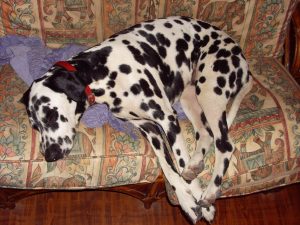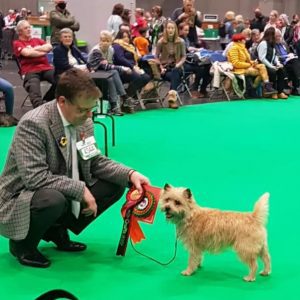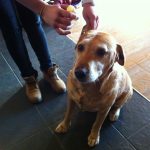Should We Ban The Breeding Of Unhealthy Dogs?
Following the recent ban by Norway on the breeding of Bulldogs and Cavalier King Charles Spaniels, Holidays4Dogs asks the question whether other countries should take the lead. Should we impose a ban on breeding un-healthy dogs? Or, does such a move risk the eventual loss of some of our best loved dog breeds?
In an historic move last week, Norway imposed a ban on breeding un-healthy dogs. The ban included no further breeding of two pedigree breeds of dog – Bulldogs and Cavalier King Charles spaniels. Both these dog breeds suffer from chronic health issues, due to artificial selection.
The connection between pedigree dog breeds and poor canine health, is regarded amongst experts to be an important animal welfare issue.
The Norwegian court case.
The Norwegian case was driven by the Norwegian Society for the Protection of Animals against the Norwegian Kennel Club, Bulldog and Cavalier Clubs, as well as six individual breeders. The NSPA claimed that, since there were no healthy bulldogs, or cavaliers that existed in the country, there was no ethically sound reason why any of these dogs should be bred from.
The courts supported and upheld the claim by the NSPA. This situation is very likely to have ramifications which will impact on other countries. Breed clubs, dog breeders and animal welfare activists, welcome such an historical decision.
Animal welfare.
Animal welfare experts in the UK have, for some years now, commentated on the extreme breeding practices of some breeds of pedigree dogs.
In 2008, a television programme called “Pedigree Dogs Exposed” made the issue hugely public. As a result, the BBC pulled their coverage of the UK Kennel Club’s Crufts dog show.
In recent years there have been attempts to review and improve breeding practices by the UK Kennel Club. However, many people believe these measures fall short of tackling a problem that has not improved.
Surgical correction to abnormalities in dogs.
‘Short nosed’ brachycephalic breeds, like pugs, English bulldogs and French bulldogs, are some of the most popular pets. Some of these breeds are so deformed in the facial and nasal area, they need surgery to open their air-ways.
Animal welfare experts, and the courts in the Netherlands agree that this is not an acceptable situation. The court case will hopefully more widespread attention to the plight of pedigree puppies born at a physical disadvantage – some would say knowingly, by breeders.
The problems of in-breeding and small gene pools.
There are some people who claim that a breeding ban would lead to the potential loss of some of our much loved worldwide dog breeds. However, when originally established, dog breeds we know and love today, would have been a mix of different breeds of dog. In some modern pedigree dogs breeds, the gene pool is so small, in-breeding is inevitable.
Out-crossing as a potential solution.
Campaigns for out-crossing have been on-going, but un-favourable with some breeders. However, this would seem a perfectly acceptable and valid solution to poor health seen in certain breeds of dog.
Dalmatians, for instance, can suffer from serious health conditions such as deafness and kidney conditions. More enlightened lovers and breeders of Dalmatians would like to see English pointer introduced into the bloodlines.
for instance, can suffer from serious health conditions such as deafness and kidney conditions. More enlightened lovers and breeders of Dalmatians would like to see English pointer introduced into the bloodlines.
This was successful for a time in the U.S. However, so many breeders and breed associations are reluctant to go down this road, claiming it damages the integrity of the breed.
However, this would be to deny that many breeds are a combination of other breeds to begin with. So if anything, out-crossing can only rejuvenate some of our pedigree dog breeds; many of which are suffering, from the minute they are born.
Final thoughts.
It is essential that breeders, breed associations and anyone interested in pedigree dogs should have the puppy’s lifelong health at the forefront of their minds. A puppy has the right to a long and natural life. If achieved, there would be no need for breeding bans.



